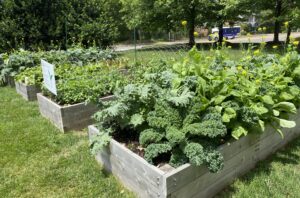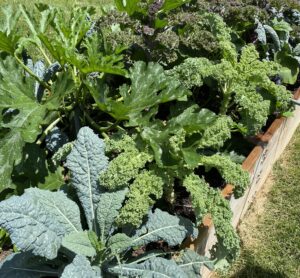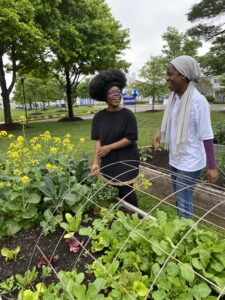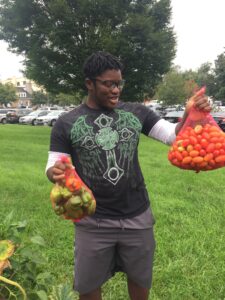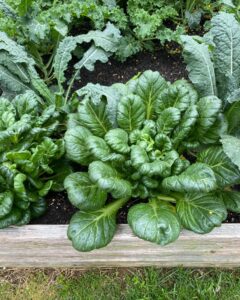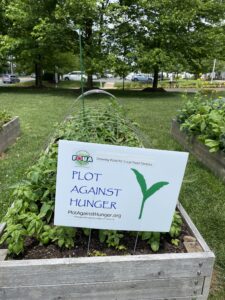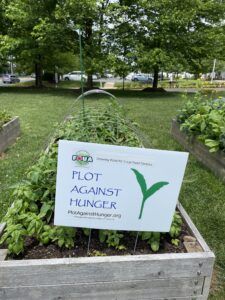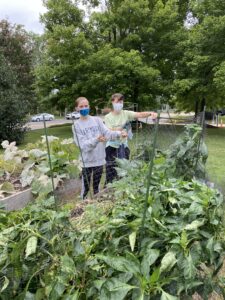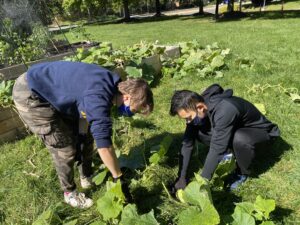Garden Details
Garden Details
We have a lot going on in our garden!
The Plot Against Hunger/Food for Thought garden was established by the students and faculty mentor of the Food For Thought club as a way to provide fresh produce to the community. Since it began, it has donated the produce to the Plot Against Hunger Program that provides fresh produce to food pantries in Arlington. We also offer the produce to members of our Marymount University community. In 2023 Marymount opened its “PATH (Pathways to Action, Truth, and Healing) project” which highlights native plants on our campus and the indigenous peoples that occupied the land where Marymount resides and the relationship these people had with the plants/earth. The Plot Against Hunger/Food for Thought garden is a stop on this PATH through campus and highlights the three sisters garden.
In 2024 the garden became part of the UCAR Ozone Garden Network, allowing us to grow ozone sensitive plants to use as bioindicators of ozone pollution. Our garden will be active participants in this Citizen Science project.
Garden Practices
Garden Practices
Our garden is organic and has four raised beds. We use companion planting to help attract pollinators and deter pests.
Kale, cabbage, collards, lettuce, potatoes, beans, corn, squash, a variety of herbs, radishes, tomatoes, peppers, etc...
The garden is run by the Food For Thought club on campus and is a source of community engagement and produce!
Additional Information
Additional Information
The garden has as many challenges as there are days in the year.
One challenge is that the location of the garden is far from the water source, forcing us to be creative with our watering. We have studied, and installed (with the help of our ceramics professor) a series of in-ground ollas that release water to the soil as it needs it. They are connected in series to a water resevoir (rain barrel) and we mostly get enough water to the plants this way.
Some of the pests we have include deer. Although we are very close to a major road and have a lot of people on campus, our deer have been known to decimate our crops. We have started using trellising to try to deter them.
Other pests include harlequin bugs on the kale, and vine borers in the squash, and wire worms in the carrots...We will use an organic BT spray on our squash this year to try to prevent the vine borers.
I can't think of anything specific right now.
The garden has been a rich source of community building. The PATH project (described above), the ozone garden, the interaction with the Plot Against Hunger community, the development of the olla irrigation system and many other projects, have allowed the garden to bring people together and grow our community.

